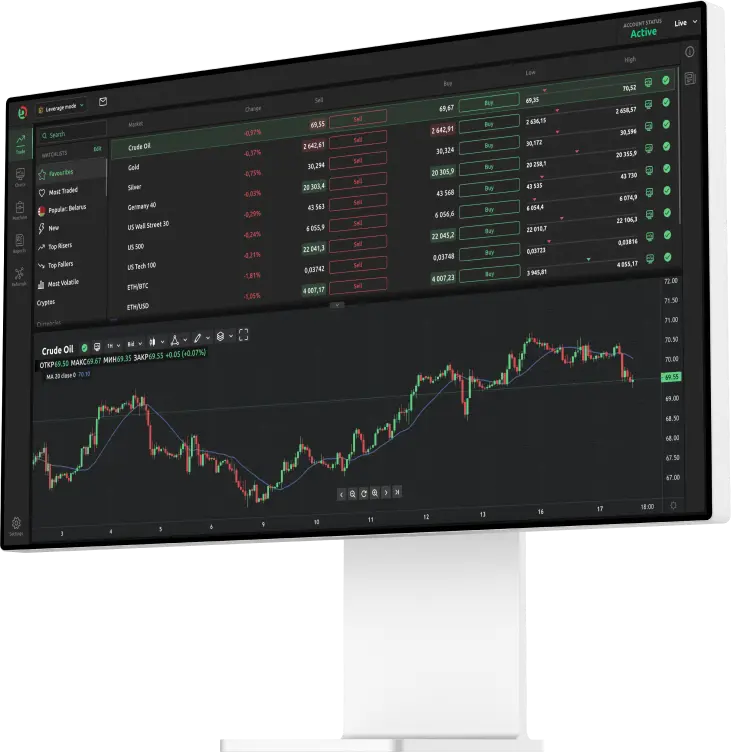How to invest before a recession

Gloomy headlines warning of an impending downturn are enough to send shivers down the spines of savers and investors. Weakening currencies, stock markets in freefall and economic doubts are unlikely to land the generous returns we all get used to when good times roll, but there are ways to reduce the risk of losses and secure modest growth when the dreaded squeeze sets in. Here, we’re going to look at how to invest before a recession — and indeed, whether you should change your strategy at all.
How to protect your money in a recession
When investing in uncertain times, it’s worth thinking about what your long-term goals are. Are you an investor in your 20s and 30s who will be wanting to use their savings to buy a house in the next couple of years? You might want to pursue recession investments that won’t wipe out the gains you’ve made so far. About to settle down for retirement? It’s worth bearing in mind that a stock market crash could have a detrimental and long-lasting impact on your nest egg.
For most people who are going to keep their assets locked in stocks for the foreseeable future — those who won’t need to access their cash unexpectedly — most experts advise hunkering down and staying put. Sure, the volatility might result in a short-term hit on the net worth of your investments, but the markets will recover in time. Indeed, trying to cash out of stocks that have taken a beating because of the economic climate can be a terrible mistake to make. All too often, you’ll only end up buying them back again when prices recover, meaning you’ve lost out twice. Ouch.
What investments do well in a recession?
Many investors turn to fixed-income assets when the economy is turning south. A good example are Treasury bonds — loans to the government that are rewarded with regular interest payments. These bonds have fixed terms ranging from a couple of years to several decades — and this means that, irrespective of the economic climate, the bondholder will receive regular dividends on their investment. The full amount borrowed is then repaid when the bond matures, but it is worth bearing in mind that inflation can eat into the value of the initial sum.
Pursuing recession investments doesn’t necessarily have to mean avoiding the stock market together, either. Certain shares can flourish during economic downturns, and a good example are those belonging to discount retailers. Well-heeled consumers who normally shop at upmarket stores may decide to streamline their grocery budgets by going to more affordable brands such as Wal-Mart — and this in turn can boost sales and increase the company’s value. Wal-Mart’s net income rose for three consecutive years during the time of the last economic crisis, which began in 2008.
When looking at how to invest before a recession, also remember the power of the consumer staple. These are branded household treats that families don’t want to go without — meaning that they cut other essentials first. Examples could include chocolate and alcohol. Think about it this way: when times are tight, holidays and electronics may be out of the reach of many — but small pleasures that serve as a distraction from the everyday pressures of life will endure.
Ultimately, one of the best strategies when investing before a recession is to analyze which stocks will be able to sustain demand even in the event of a downturn.
You should couple this with detailed examination of a company’s strategy. Although a business trading on the stock market may have winning products that could withstand squeezed consumer spending, these products may not be supported with the marketing budgets required to maintain public awareness.
Let’s look at the numbers behind this. MarketSense analysis following the recession from 1989 to 1991 saw many companies retreat and spend less on their advertising, thinking that consumers wouldn’t respond. But those who actually boosted their budgets — peanut butter companies, salad dressing makers, beer brands and fast food chains among them — were actually rewarded with a double-digit rise in sales. As such, when you’re on the hunt for recession investments, back stocks offering products that the public will continue to turn to — and companies that understand the importance of continuing to grow demand even in a challenging climate.
Last but not least, don’t forget that some of the best recession investments can involve pouncing on company stocks when they have taken a beating because of the economic downturn. The markets can be like the Black Friday sales, with high-quality stocks available to snap up at fantastic prices. It is impossible to time these purchases, meaning that their value may go down further before they go up, but this is one surefire way to embrace Warren Buffett’s “buy low, sell high” mantra.

